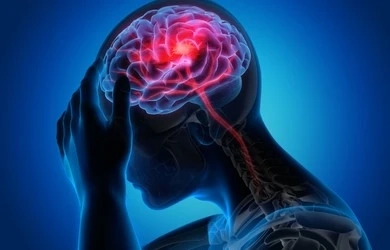One of the most typical medical side effects is headache. Along with many medical conditions, various ear, nose, and throat conditions can also result in headaches.
Headache is a term used to describe pain or discomfort in the head or neck. People of all ages frequently deal with this illness, which ranges in severity and length. To properly manage this illness, it might be helpful to understand the types, causes, and management of headaches.
In today’s blog, we will study about types of headaches
The Epidemiology
A headache may result from —
Illnesses associated with psychology,Otolaryngology (nose and paranasal sinuses), Ophthalmology (eyes), Neurology,Dentistry, Systemic health.
Most headaches are of the tension sort.
Types Of Headaches
The following are the different types of headaches.
Tension Headache: The most typical form of headache is tension, characterized by pressure or dull discomfort on both sides of the head.Migraines: Severe, pulsing headaches frequently accompanied by vomiting, nausea, light and sound sensitivity, and vision abnormalities.Cluster Headache: Cluster headaches are excruciatingly painful headaches that often affect one side of the head and come in cyclical patterns or clusters. They frequently come with nasal congestion or watery eyes.Sinus headaches: Sinus headaches are discomfort and pressure in the forehead, cheeks, and nasal regions brought on by sinus infections or inflammation.Rebound Headaches: These are brought on by overusing or stopping certain headache treatments.Hormone Headaches: Associated with hormonal changes in women, often occurring before or during menstruation or during menopause.
Management Techniques For Headaches
A mix of self-care techniques, lifestyle modifications, and, occasionally, medical procedures are used to manage headaches. Here are some efficient headache relief techniques:
Identify Triggers: Keep a headache diary to track potential triggers such as foods, activities, stressors, or environmental factors. Avoid or manage these triggers to reduce the frequency and intensity of headaches.Relaxation Techniques: Practice stress management and relaxation techniques like deep breathing, meditation, yoga, or taking breaks from work or stressful situations.Healthy Lifestyle: Maintain a regular sleep schedule, eat balanced meals, stay hydrated, limit caffeine and alcohol intake, and exercise regularly.Medications: Over-the-counter pain relievers (e.g., acetaminophen, ibuprofen) can relieve mild to moderate headaches. For severe or recurrent headaches, consult a healthcare professional who may prescribe specific medications or therapies.Apply Heat or Cold: Use a cold or warm compress on the head or neck to help alleviate pain and relax muscles.Adequate Rest: Get enough sleep and ensure a comfortable sleep environment.Physical Therapy: In some cases, physical therapy or chiropractic care can help manage headaches, particularly those caused by muscle tension or posture issues.Seek Medical Advice: Consult a healthcare professional if headaches are severe, frequent, or accompanied by other symptoms to rule out any underlying medical conditions or receive appropriate treatment.
Ending Thoughts
It's crucial to remember that self-diagnosis and self-treatment might not always be enough, particularly if headaches are persistent or severely affect everyday life. It is advised to consult a healthcare expert for an accurate assessment and customized management plan.


